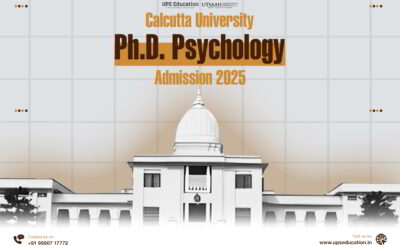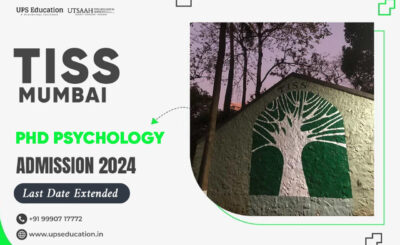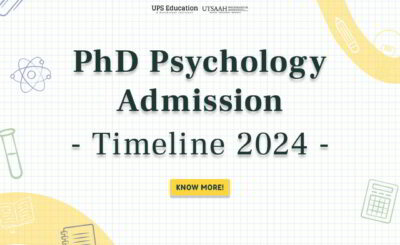A Doctor of Philosophy (Ph.D.) is the highest and most common academic degree. A Ph.D. degree normally takes between three and four years of full-time work to complete. To get it, you go through a tough program where you learn and do research. People get PhDs in lots of different subjects. Because a Ph.D. is all about research, people who want to get a Ph.D. have to do their own special research that helps them learn new things. They usually write a big paper called a dissertation to show what they discovered.
The Ph.D. exam also called the Doctor of Philosophy exam, is a really important step on the path to getting a Ph.D. degree. It’s like a big turning point in the Ph.D. program. Usually, it takes place after students have finished their required classes and sometimes done some early research. The main goal of this exam is to see how much a student knows, how well they understand their subject, and if they’re ready to do their own research in their chosen field.
An important aspect of the Ph.D. exam is its broad scope. This examination covers a lot of topics in the candidate’s field. Think of it as a comprehensive assessment, similar to a substantial test, aimed at determining whether the candidate possesses a deep understanding of the subject and has acquired the essential knowledge required to conduct independent research and have a significant impact within their field of expertise.
Basically, it’s a test to see how well they’ve mastered their academic subjects. Ph.D. exams usually include writing and speaking parts. For the writing part, they might have to write essays, make research plans, or answer questions from the committee. The oral component frequently involves defending the written work, discussing research plans, or fielding questions from a committee of faculty members who specialize in the candidate’s area of study.
Eligibility Criteria for PhD Psychology Entrance
The requirements for admission to a Ph.D. program can vary significantly depending on the university, country, and field of study. However, here are some common eligibility criteria that are often require for admission to Ph.D. programs.
- Candidates must have obtained 55% marks or Equivalent grades in the Master’s or M.Phil Degree in Psychology. This is applicable for all Ph.D. programs except in Engineering and Technology.
- Students in the general category are required to have a minimum of 55% marks in their master’s degree.
- In some cases, you may be required to attend an interview as part of the admission process. This interview may be in person or conducted online.
- Usually, the preferences are given to candidates, who are holding experience in the field of research.
Types of Entrance Exams for PhD Psychology
There are two types of exams that allow candidates to get admission to Ph.D. after clearing these:
- UGC NET/JRF
- GRADUATE APTITUDE TEST IN ENGINEERING (GATE)
UGC NET /JRF
The UGC NET/JRF is a countrywide test that checks if Indian citizens are eligible to become Assistant Professors or obtain an Assistant Professor + Junior Research Fellowship at colleges and institutions in India. The University Grant Commission (UGC) has assigned the task of conducting the UGC-NET exam to the National Testing Agency (NTA). The UGC-NET exam occurs twice annually, usually in June and December. It includes two of two sections. The first part evaluates teaching and research abilities through a general paper. The second part focuses on the specific subject you are applying for, like Psychology. In total, candidates have to answer 150 Multiple-Choice Questions (MCQs) within a three-hour time frame. The National Testing Agency (NTA) administers this exam using the Computer-Based Test (CBT) layout.
There is no maximum age limit for candidates applying for the UGC-NET exam to qualify for the Assistant Professor position. To qualify for the Junior Research Fellowship (JRF) in the general category, candidates must be under 30 years. It’s worth noting that candidates from OBC-NCL, SC, ST, PwD category, the third gender, and women candidates can avail a significant relaxation of up to 5 years in the maximum age limit.
Role of National Testing Agency in the UGC NET Exam
The University Grants Commission (UGC) has given the responsibility to the National Testing Agency (NTA) to conduct a test called UGC-NET. This test verifies if Indian candidates can become “Assistant Professors” or get a “Junior Research Fellowship and Assistant Professor” job in Indian universities and colleges. The mode of UGC-NET is Computer-Based Test (CBT) Mode.
The performance of the candidates in both Paper I and Paper II of the UGC-NET Exam determines that the candidate will receive a Junior Research Fellowship (JRF) and/or be qualified for an Assistant Professor job. If anyone only qualifies for the Assistant Professor post, they can’t get the JRF. Candidates, who meet the requirements for Assistant Professor jobs must follow the hiring rules of the universities.
General Aptitude Test in Engineering (GATE)
GATE is a nationwide examination came into existence to evaluate a broad knowledge of engineering, technology, science, and humanities. Its primary target is to ascertain eligibility for admission to post-graduate level programs in participating institutions. Successfully passing the GATE exam is beneficial for attaining entry to master’s and direct doctoral programs in engineering, technology, humanities, and architecture. Each year, a different participating institution is tasked with conducting the GATE exam on behalf of the National Coordination Board (NCB)-GATE, which operates under the Department of Higher Education, Ministry of Education (MoE), Government of India. They conduct the GATE exam annually in February using a computer-based test (CBT) format, and the score remains valid for three (3) years from the date of the result announcement.
The participating institutions for GATE include the Indian Institute of Science (IISc), Bengaluru, and seven Indian Institutes of Technology (IIT Bombay, IIT Guwahati, IIT Delhi, IIT Kanpur, IIT Madras, IIT Kharagpur, and IIT Roorkee). In 2024, the Indian Institute of Science (IISc), Bengaluru, will be responsible for organizing GATE.
List of Top Colleges for PhD Psychology in India
| S.NO | Colleges |
| 1 | Delhi University (DU) |
| 2 | Banaras Hindu University (BHU) |
| 3 | Ambedkar University Delhi (AUD) |
| 4 | Jamia Milia Islamia (JMI) |
| 5 | Aligarh Muslim University (AMU) |
| 6 | Calcutta University |
| 7 | National Institute of Mental Health and Neuro Sciences (NIMHANS) |
| 8 | Central Institute of Psychiatry (CIP) |
| 9 | Lokopriya Gopinath Bordoloi Regional Institute of Mental Health (LGBRIMH) |
| 10 | Ranchi Institute of Neuro-Psychiatry & Allied Sciences (RINPAS) |
About UPS Education
UPS Education is specialized in providing classes of M.Phil in Clinical Psychology/ UGC NET JRF /Ph.D. and Master’s in Psychology Entrance Exam. We have a precise experience in assisting students for these Entrance Exams. UPS Education students proved their consistent results in various Psychology Entrance Tests.
UPS Education provides classes in three different modes. Candidates have the option to attend the classes in-person which is available in regular mode, live interactive mode, and virtual recorded sessions. Every year, the students get qualified in various institutions such as NIMHANS, CIP Ranchi, RINPAS, PGIBAMS, etc.
The remarkable performance of students in the Entrance Exam is a testament to their best practice, dedication, and intelligence. We are impatient to see what they are going to accomplish in the upcoming years. They are having the potential to change the world, and we are proud to be a part of their journey.






